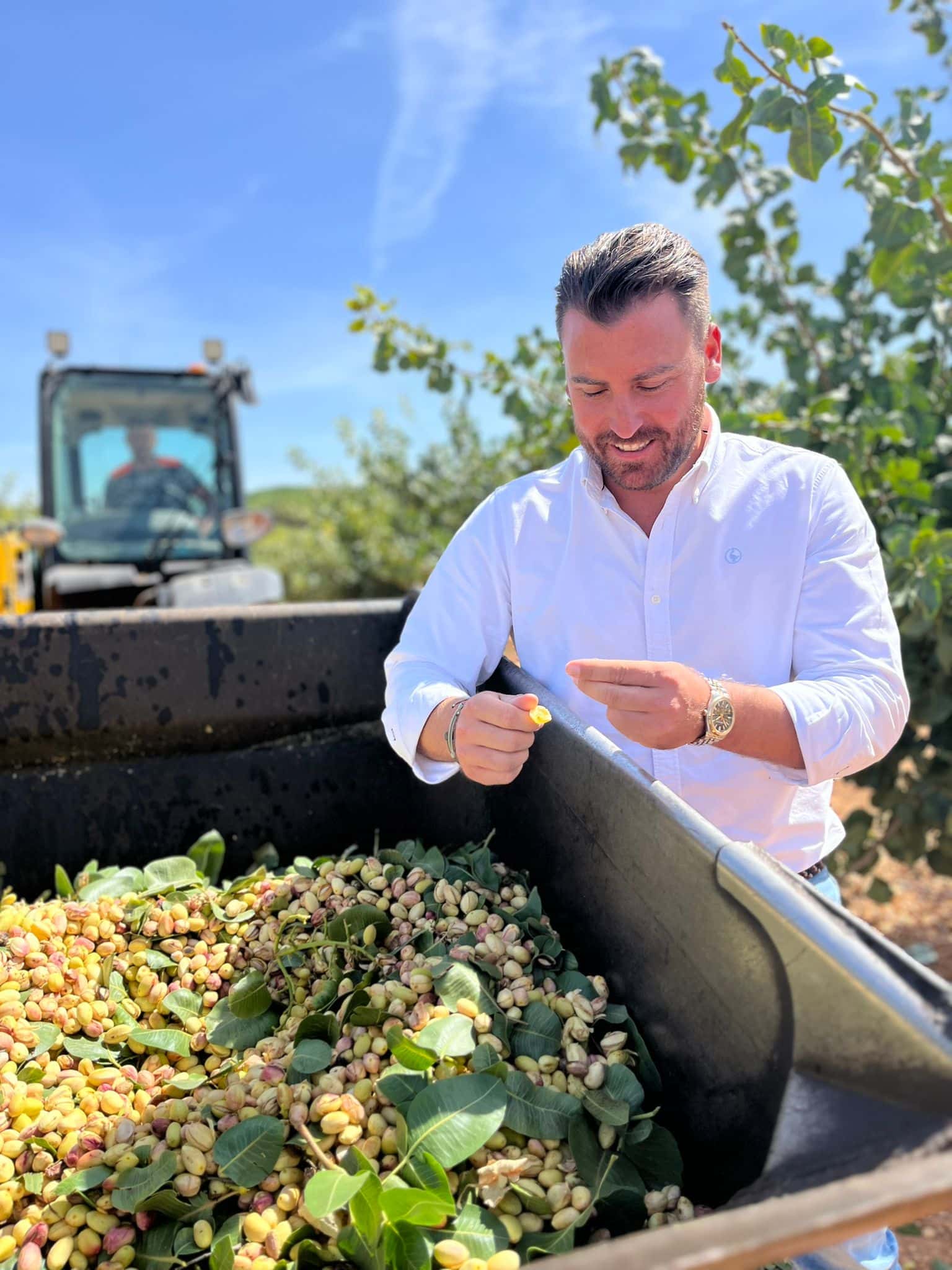Key Takeaways:
- Agróptimum’s study forecasts a significant rise in pistachio consumption, exceeding 976,000 tons globally.
- The study highlights Spain’s strategic potential to lead pistachio production in Europe, fueled by ideal climate and proximity to major export markets.
- Pistachios are positioned as a profitable, sustainable crop, with long-term resilience to climate change.
- Technological advancements and intensive cultivation practices are enhancing pistachio crop profitability.
Agróptimum’s Analysis of Pistachio Industry Trends
Agróptimum, a Spanish agri-food and biotechnology leader in pistachio plants and plantation management, has unveiled the first comprehensive global study on pistachio cultivation, titled “Present and Future of Pistachio Cultivation and Processing: A Business Perspective.” Presented by CEO Ángel Minaya, the study provides a detailed analysis of global pistachio trends from 2010 to 2023 and anticipates rising demand through 2040.
According to the study, global consumption of pistachios is projected to exceed 976,000 tons in the coming years, driven by increasing demand and changing consumer preferences. Spain, with its favorable climate and advanced cultivation practices, is poised to become Europe’s pistachio production hub, capitalizing on its proximity to the European Union market.
A Profitable and Sustainable Crop for the Future
The study concludes that pistachios stand out as a profitable and sustainable crop. The long-term profitability is attributed to pistachios' resilience, growing demand, and the adoption of advanced technologies. With the expected rise in origin prices over the next decade, the crop offers substantial profit potential for investors and farmers alike. Minaya notes that “the adoption of technology and innovation by operators is enhancing quality and ensuring Spain’s competitiveness in the global pistachio market.”
Resilience Against Climate Change
One key finding emphasizes pistachios’ resilience to climate change. The pistachio tree, with a lifespan exceeding 100 years, demonstrates a strong tolerance to water stress, salinity, and disease, adapting well to semi-arid conditions in Spain. This makes it suitable for regions facing water scarcity, where it can begin bearing fruit in as little as 3.5 years.
“A well-prepared crop for dry climates, pistachio trees can sustain production with minimal input costs,” the report states, underscoring the crop’s potential in Spain’s semi-arid landscapes.
Future Market Outlook
Agróptimum’s forecast anticipates that by 2040, the global pistachio cultivation area will reach nearly 1.8 million hectares, producing over 1.6 million tons annually. This expansion suggests a robust market for pistachios in the years to come, with high demand likely pushing up origin prices and further enhancing crop profitability.


